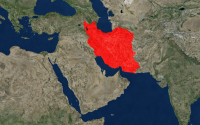5 November 2007
Most people say they are ready to make personal sacrifices, including paying more for their energy, to help address climate change, according to a BBC World Service poll of 22,000 people in 21 countries.
Substantial majorities of those polled in all countries (83% overall) say it will be necessary for people in their country to "make changes in their lifestyle and behaviour" to reduce the emission of climate-changing gases.
In 14 of the 21 countries, a majority (61% on average overall) of those polled say it will be necessary to increase energy costs to encourage conservation and reduce carbon emissions.
Support for increased energy taxes seems to be conditional.
Asked if they would support higher taxes on types of energy, such as oil and coal, that cause most carbon emissions, only half (50% overall) approve.
But this rises to three out of four (76% overall) if the tax raised was specifically devoted to promoting energy efficiency or developing cleaner fuels.
Such a tax receives majority support in all 21 countries polled.
These results hold true in the USA and China, the two countries that emit the largest amounts of carbon dioxide.
Urban Chinese are among those most ready to change their lifestyle (83%), to see the cost of energy go up (83%) and to pay higher taxes on coal and oil (85%).
Seventy-nine per cent of Americans agree that lifestyles in the United States will have to change and 65% say that energy costs will have to rise.
Americans are initially divided about paying a higher tax on coal and oil (46% support), but this rises to 74% if the revenues are used to promote efficiency or develop new fuels.
The poll is being published to coincide with BBC World Service's week of programming on climate change, Taking The Temperature, during which the impact of the events and negotiations on climate change throughout the year will be assessed.
The survey was conducted for BBC World Service by the international polling firm GlobeScan together with the Program on International Policy Attitudes (PIPA) at the University of Maryland.
GlobeScan coordinated fieldwork between 29 May and 26 July 2007.
Director of PIPA, Steven Kull said: "People around the world recognise that climate change requires that people change their behavior. And that, to provide incentives for those changes there will need to be an increase in the cost of energy that contributes to climate change."
GlobeScan President, Doug Miller said: "While few citizens welcome higher taxes, the poll suggests that national leaders could succeed in introducing a carbon tax on energy. The key requirement is that their citizens trust that the resulting tax revenues will be invested in addressing climate change by increasing energy efficiency and developing cleaner fuels."
Notes to Editors
![]() A total of 22,182 citizens in Australia, Brazil, Canada, Chile, China, Egypt, France, Germany, Great Britain, India, Indonesia, Italy, Kenya, Mexico, Nigeria, the Philippines, Russia, South Korea, Spain, Turkey, and the United States were interviewed face to face or by telephone between 29 May 29 and 26 July 2007.
A total of 22,182 citizens in Australia, Brazil, Canada, Chile, China, Egypt, France, Germany, Great Britain, India, Indonesia, Italy, Kenya, Mexico, Nigeria, the Philippines, Russia, South Korea, Spain, Turkey, and the United States were interviewed face to face or by telephone between 29 May 29 and 26 July 2007.
Polling was conducted for BBC World Service by the international polling firm GlobeScan and its research partners in each country.
In eight of the 21 countries, the sample was limited to major urban areas.
The margin of error per country ranges from +/-2.4 to 3.5 percent.
![]() For more detailed poll results, please contact the BBC World Service Press Office.
For more detailed poll results, please contact the BBC World Service Press Office.
http://www.bbc.co.uk/pressoffice/pressreleases/stories/2007/11_november/05/climate.shtml






